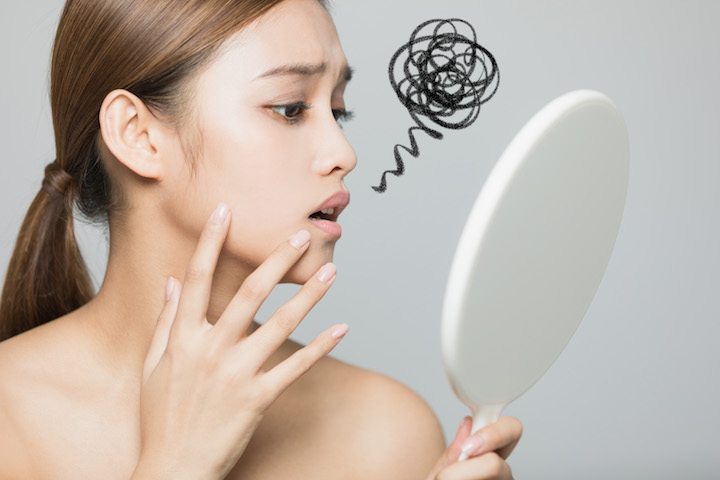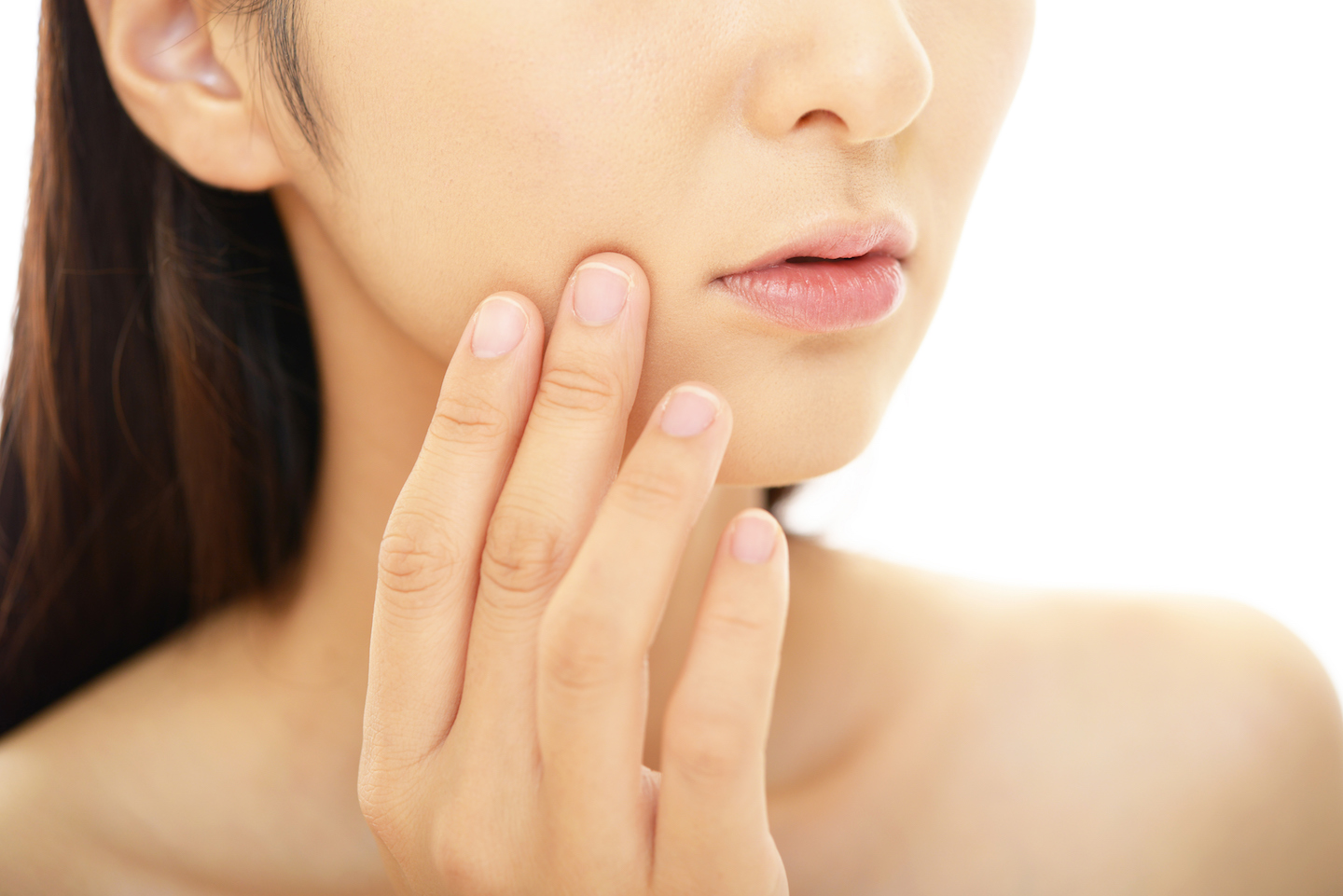How Stress is Stressing Out (& Aging) Your Skin — and What You Can Do About It
’Tis the season to be jolly, but we all know that doesn’t happen without a few good stress sessions. Sadly, when it comes to your holiday plans to look your best, worry and anxiety can be the ultimate Scrooge. Ahead, how stress can sabotage your skin and what you can do about it.
By this time of the year, it’s safe to assume you’re familiar with a sensation called stress. Figuring out how to squeeze in all your holiday socials and what perfect gifts your family, friends, coworkers, and kids would love not return without breaking your wallet can put anyone in a hair-pulling craze.
Most of us accept stress as a necessary evil not just during this festive season but in life. After all, none of us can escape work, bills, and the stormy part in K-dramas when the world seems to be falling apart. But if we all knew just how much our worries and woes impact the look and performance of our skin, we wouldn’t settle for stress, ever.
To find out just how stress can wreck your skin (even change the shape of your face) and what you can do about it, keep calm and scroll on.
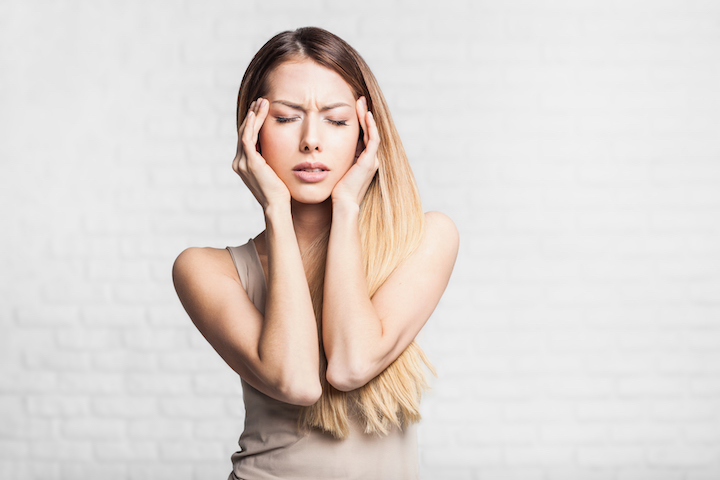
The science behind how stress is wrecking your skin
Acne
Ever notice how whenever you’re compelled to utter the words, “I’ve never been so stressed in my life,” a pimple pops up? It turns out it’s not magic, it’s science.
Our endocrine system is made up of glands that release all types of hormones. When we’’re stressed, our glands act out and release more hormones like cortisol that are directly linked to the sebaceous glands. This throws other hormones off balance and increases skin’s oiliness, leading to acne and even inflammatory acne, which are the deep pimples that form in the chin and lower part of the face.
Your skin problems, but worse
Stress also tilts the balance between good and bad bacteria in the gut. When this microbiome is disrupted, a rebellion occurs and acne-causing bacteria thrives, not only leading to new breakouts but an aggravation of already existing acne as well.
Eczema, psoriasis, or other dermal conditions we already had may also intensify and flare up during times of stress. The hormone cortisol is to blame again, as it wreaks havoc on the immune system, leaving skin more vulnerable.
Dryness
Stress not only sucks the life out of us, studies show it can also drain skin’s natural moisture supply dry. It messes with the production of hyaluronic acid, which leads to dry skin and a dull complexion.
Wrinkles, fine lines & premature aging
When it rains, it pours. Adding to the list of stress-induced skin problems is something that can easily stress us out even more — signs of premature aging like wrinkles, fine lines, dullness, and loss of volume.
There are little caps at the end of our DNA strands called telomeres. These little guys protect our chromosomes, and the shorter they are, the faster our cells break down or die off. Well, get this: People with stress generally have shorter telomeres, which means skin is not able to repair and regenerate as more youthful skin does.
And then there’s cortisol. Again. Cortisol is to collagen what Lee Jae Kyung was to Do Min Joon in My Love from Another Star, except in this case cortisol wins. This hormone, which abounds with stress as mentioned before, damages the precious collagen that keeps skin taut, firm, and youthful. Hello, premature aging.
What you’re doing to make it worse
Our hormones are not the only ones to blame for our skin looking a hot mess when we’re stressed. It turns out you and I are guilty as well. When ridden with angst and anxiety, we neglect self-care and instead do things, whether we know it or not, that are also damaging to our skin.
We eat and drink like crap
Something about indulging in sweets and wining while whining really does the trick when we’re stressed. But of course, these temporary fixes are just that, and they actually end up inflicting more harm than good.
When life feels like it’s unraveling, we usually don’t reach for a glass of water. We quench our thirst and desperation with coffee (because who has time for sleep?) or soda to get us through the day. So not only are we not drinking enough water, but we’re also filling up with dehydrating drinks. A cocktail for disastrously dry skin.
We also try to “wine down” at the end of a crazy day, but alcohol literally depletes skin of fluids, which in the long run can significantly boost wrinkle formation. Reaching for booze on the regular during stressful seasons can also inflame skin and exacerbate pre-existing skin conditions like psoriasis.
Sugary or high-glycemic treats can lead to a spike in insulin levels, and inflammation causes our system to release enzymes that disintegrate collagen and elastin. Down the road, this results in wrinkles, sagging skin, and other signs of aging. The ironic thing is, stress itself also increases insulin levels, so munching on sweets while stressing is doubly a bad idea.
We make faces
Turn that frown upside down — seriously. When we’re stressed, we tend to frown, purse our lips, or hold other facial expressions without even realizing it. Eventually, this can result in permanent lines on the forehead, around our eyes, and along our lips.
Jaw clenching, usually unbeknownst to us, is another facial expression we default to when anxious. This causes the muscle that runs from the back of our cheeks to the lower jaw (the masseter muscle) to strengthen, which eventually can alter the facial shape to be more squarish and the size to appear wider on the bottom.
We forget how to breathe
Nothing can make us hold our breath like … stress. When we’re stressed, we stop breathing consistently, sometimes temporarily stop altogether, and also take short and shallow breaths.
This is a problem because skin cells depend on oxygen to perform their best, and oxygen is most effectively delivered to skin when we take deep breaths. Deep breathing boosts circulation, which helps the skin (not to mention the heart and lungs) to receive the oxygen they need to function. It also improves the body’s natural release of toxins like carbon dioxide that can otherwise compromise our immune system and eventually our skin cells.
We don’t sleep enough
If there were a contest over what can most successfully prevent us from beauty sleep, stress would beat out caffeine and maybe even K-drama marathons. All our cares and concerns tend to keep us tossing and turning in bed and drastically decrease the quality of our sleep.
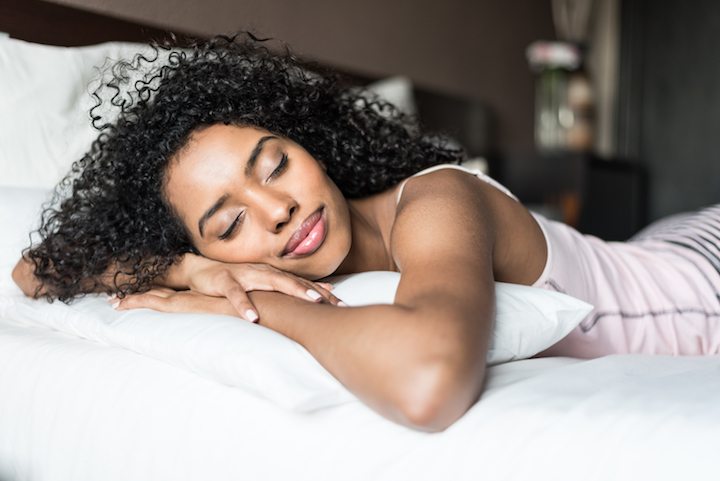
Lack of sleep can cause fluid to build up in the under-eye area, which leads to puffiness and the eye bags we all dread. A good night’s sleep, on the other hand, reduces the production of cortisol, the culprit behind many stress-induced skin problems, so catching enough zzz’s during frenzied times is key.
We neglect skincare
The last thing we want to do when we’re exhausted and pushed to our mental limits is take care of our skin. So we either skimp or skip altogether, which inevitably leads to preventable pimples and other problems in addition to the ones caused by the internal affairs of our stressed-out system. The unsightly visual only adds to our stress, and ah! It’s a vicious cycle that keeps on spinning out of control.
Throw a wrench into this downward spiral by sticking to your regular daily skincare routine or at least simplifying it down to what works for your skin. But if you can manage, show your skin some extra lovin’ since stress makes it more vulnerable than usual.
How to deal with stress
While there are eye creams and anti-acne serums aplenty to help ease the blow, the truth is, no amount of topical TLC can completely cure what’s going on deep within. The internal affairs of a stressed-out system deter skincare products from fully doing what they’re supposed to do. So what’s the solution?
The obvious and ultimate answer lies beyond the skin. Address the stress, resolve it, and put an end to it. But we all know it’s easier said than done — life inescapably gets stressful, and progress takes time. Then what of our skin? There are smaller, easier steps we can take in the meantime to manage the stress each day and curb its impact on our skin (and other parts of our mind and bod).
1. Write it out, throw it out
Throw your stress away. No really. Treating your inanimate thoughts as physical objects by writing it down on paper and then discarding the paper actually helps decrease stress according to this study. Furthermore, the act of jotting down your thoughts can help declutter the mess in your mind, while visualizing your thoughts and feelings in a more organized layout can help you tackle them more easily one by one.
2. Stop and smell the roses, literally
Scientists in Japan found that smelling floral fragrances and other sentimental scents can decrease stress levels. For instance, lavender helps induce sleep, pine relieves stress, and vanilla bean relaxes and raises your mood. So keep a fresh bouquet of florals near you, light a scented candle, or opt for an oil diffuser to inhale your way to a more peaceful state of mind.
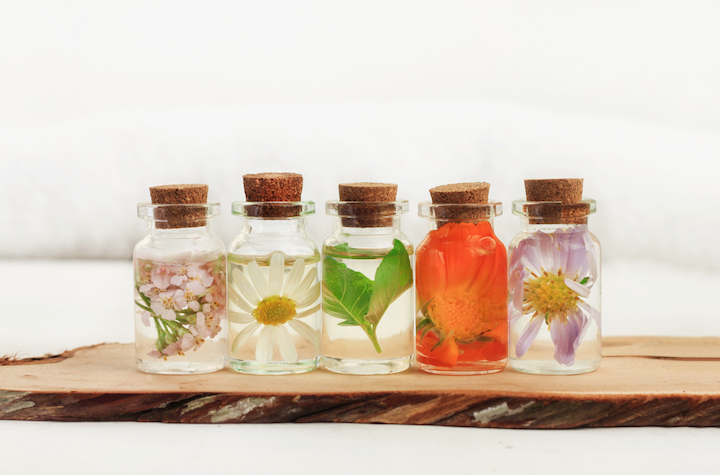
3. Breathe deeply
Speaking of inhaling, this may be the easiest way to lower stress levels. We all breathe anyway, so might as well make it count by breathing the right way. Deep and slow breathing can calm us and train our bods to go easy on the production of stress hormones. Hence, the importance of breathing exercises like yoga and cardio workouts that encourage such inhaling and exhaling.
4. Sleep on it. But at night
As previously mentioned, stress tends to make us sleep less, but ever notice that it makes us want to catnap more? Do your best to skip the siesta so you can get in good quality shut-eye at nighttime. That’s when the mind and body recharge. And get this — not getting enough of a full night’s rest spikes our stress levels, which only adds to the original stress that is preventing us from sleeping at night anyway! Yet another vicious cycle.

To help you doze deeply, try shutting off tech devices an hour prior to your goal bedtime, cut off all caffeine by the time afternoon comes around, and don’t booze before bed.
5. Just say no
Too much to do and too little time? With work, friends, family, and other responsibilities, our plate is often more full than we can handle, especially in this festive season of the year. Yet we find ourselves saying “yes” to the favors and social requests that we probably should be saying “no” to, only to freak out with overwhelming to do’s. Learning to say no to unnecessary plans and petitions can help alleviate our stress load by giving us more time and even building up our self-confidence. It seems hard at first — perhaps we fear conflict, rejection or just plain FOMO — but try it once or twice and you’ll feel liberated!
How does your skin react to stress? What do you do to alleviate your anxieties?
Loading...
